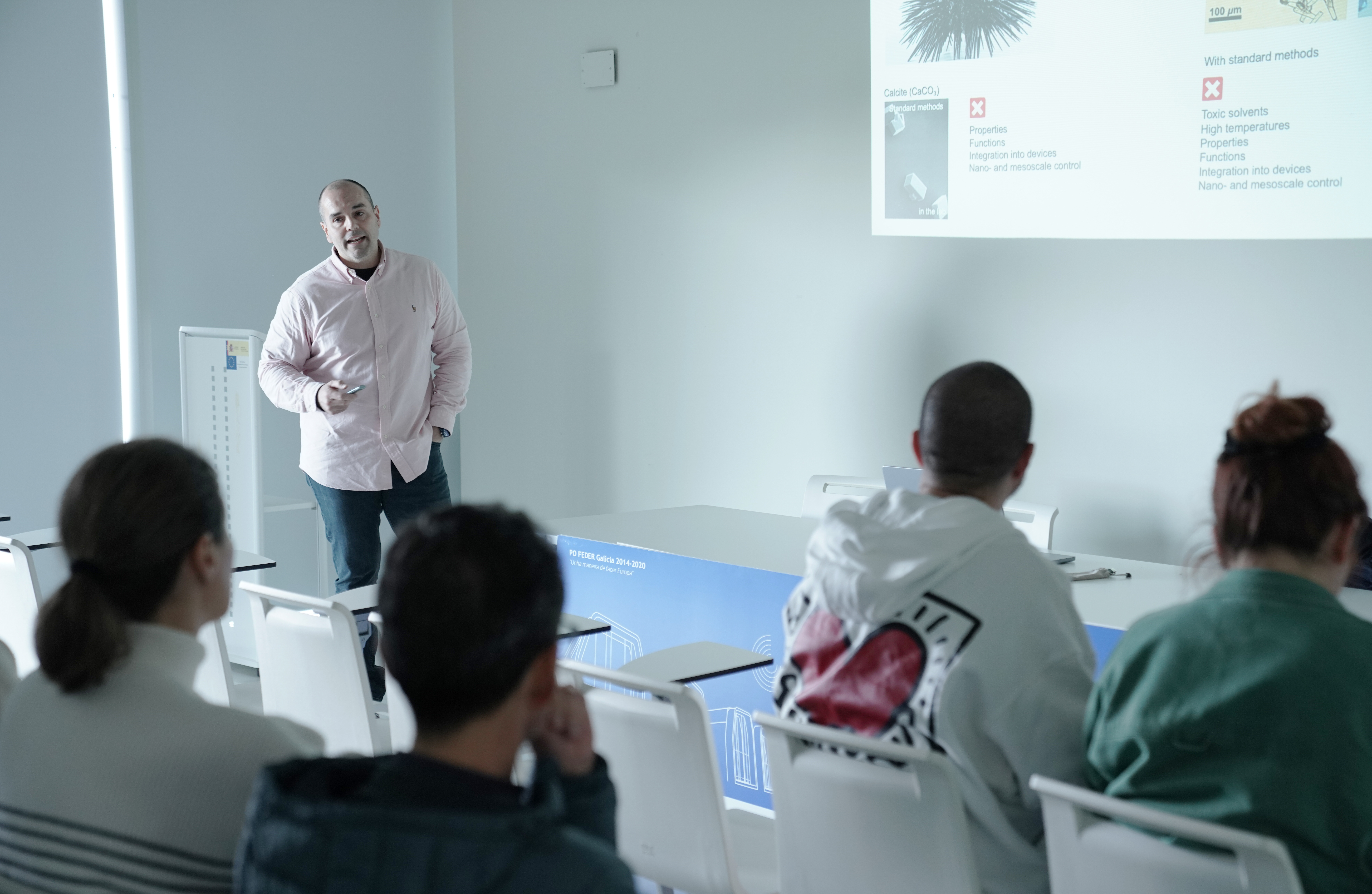Events
O xoves 27 de marzo de 2025, Josep Puigmartí-Luis (Departament de Ciència dels Materials i Química Física, Institut de Química Teòrica i Computacional, Barcelona) ofrecerá o seminario “Revolutionizing materials engineering and processing with microfluidic tools" dentro do ciclo CINBIO Seminar Programme.
Será ás 11:00 horas na Sala de seminarios de Torre CACTI.

ABSTRACT:
Controlling and understanding the mechanisms that govern crystallization processes is crucial in contemporary materials science, particularly in the field of reticular solids, where significant challenges remain. In this seminar, I will demonstrate how microfluidic synthetic conditions can control the size and shape of various functional porous crystals, such as metal-organic frameworks (MOFs) and covalent-organic frameworks (COFs). Specifically, I will show that microfluidic synthesis can produce the largest MOF single crystals with controlled nonequilibrium shapes reported to date, in contrast to the typical polyhedral microcrystals formed under bulk crystallization conditions. Additionally, I will illustrate how microfluidic technologies can address several challenges in the COF research area. For instance, I will demonstrate that a microfluidic device can enhance the processability of COFs, enabling the creation of macroscopic architectures composed solely of COFs with arbitrary shapes. This is particularly significant given that COFs are typically obtained as powders with limited solubility and no melting point, making conventional processing techniques like solution processing or melt-extrusion inapplicable, which also hinders their use in many potential applications. Moreover, I will also present how our group utilizes microrobotic platforms to apply MOFs and COFs in biotechnology and other advanced fields. These microrobotic systems enable precise 3D manipulation of MOFs and COFs, facilitating innovative appli-cations such as targeted drug delivery, biosensing, and tissue engineering. By integrating microrobotics with our advanced synthesis techniques, we can create highly specialized and functional materials tailored for specific biomedical applications. This approach not only enhances the versatility and functionality of MOFs and COFs but also opens new avenues for their use in cutting-edge biotechnological solutions.
References:
[1]. Sorrenti, A., Jones, L., Sevim, S., Cao, X., deMello…, Puigmartí-Luis, J., Growing and Shaping Metal–Organic Framework Single Crystals at the Millimeter Scale. J. Am. Chem. Soc., 2020, 142, 9372–9381.
[2]. Covalent transfer of chemical gradients onto a graphenic surface with 2D and 3D control, Y. Xia, S. Sevim, J…,, S. De Feyter, J. Puigmartí-Luis, Nature Communications, 2022, 13, 7006.
[3] Chirality transfer from a 3D macro shape to the molecular level by controlling asymmetric secondary flows, S. Sevim, A. Sorrenti, …, J. Puigmartí-Luis, Nature Communications, 2022, 13, 1766.
[4]. Electrostatic catalysis of a click reaction in a microfluidic cell, S. Sevim, C. Franco, A. C Aragonès, N. Darwish, D. Kim, …, I. Díez-Pérez, J. Puigmartí-Luis, Nature Communications, 2024, 15, 790 .
[5]. Tailored design of a water-based nanoreactor technology for producing processable sub-40 nm 3D COF nanoparticles at atmospheric conditions, A. Veciana, G. Llauradó-Capdevila, A. Mayoral, R. Pons, D. Rodríguez-San-Miguel…, C. Franco, S. Pané, J. Puigmartí-Luis, Advanced Materials, 2024, 2314634.






